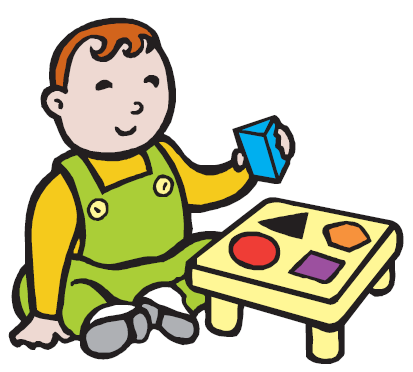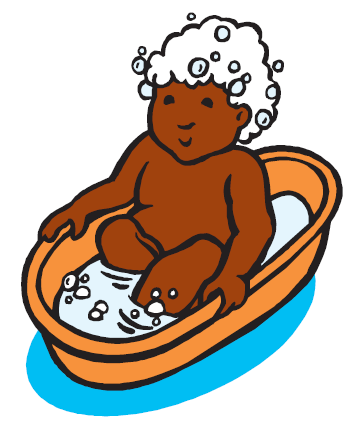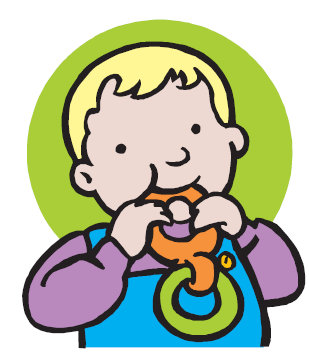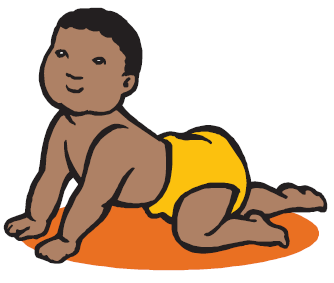Introduction
As more and more parents in today's society are working, many children are being left in the care of older siblings or in the care of babysitters. One of the biggest dilemmas that parents face is selecting a good babysitter. While many parents rely on friends and family, others are forced to search among total and complete strangers for quality childcare.
One way that parents can increase the odds of getting a quality babysitter, is to check whether or not the babysitter they are considering is certified.
This fact sheet is designed to help parents understand the importance of hiring certified babysitters. Look for additional fact sheets on: Selecting a Good Babysitter and The Babysitting Certification Program.

What is a Certified Babysitter?
Certified babysitters, unlike regular babysitters, are individuals who have received specialized training in babysitting duties and responsibilities. Typically, certified babysitters attend a 3-session (two hours each session) training program, which prepares them to provide appropriate childcare.
What Skills Do Certified Babysitters Gain?
While all babysitters ideally supervise and provide care for children, certified babysitters are specially trained in the following:
- Babysitting Duties and Responsibilities - Certified babysitters receive extensive training to help them become familiar with the duties and responsibilities associated with babysitting. Their training includes learning what it takes to be a good babysitter; learning appropriate childcare procedures; learning the ages and stages of child development; learning the importance of obtaining and maintaining client information (child's daily schedule/routine, medical information, food/drug allergies, parental contact information, layout of home); learning how to provide care for more than one child; and learning how to stay in control when dealing with behaviors of children.
- Crisis and Emergency Response Training - Certified babysitters receive training to help them handle most crisis and/or emergency situations. In collaboration with other agencies, their training includes Cardio Pulmonary Resuscitation (CPR), First Aid training, fire safety information, and home alone safety information.
- Abuse and Neglect Recognition - Certified babysitters receive training to help them identify cases of child abuse. Their training includes the Abuse and Neglect Recognition and Reporting information so they are familiar with appropriate behaviors in caring for children.


What Should Parents Expect From A Certified Babysitter?
According to Ralph M. Shenefelt, General Manager of the American Safety & Health Institute (ASHI), "Parents need to know that the babysitter - no matter what his or her age - is prepared for any emergency that might arise in their absence." Additionally, Mr. Shenefelt notes that, "While experience is important, it's not enough that someone has been watching children for years or that they have raised their own children. People who watch children should be professionally trained to deal with medical emergencies."
Parents who hire certified babysitters should expect them to be professional as well as prepared, with some quality training ages and stages of development. As a result of their extensive training, certified babysitters are equipped with basic childcare information and are more likely to be better prepared to handle emergency and/or crisis situations. Additionally, the CPR and First Aid training helps make certified babysitters better prepared to handle more medical emergencies.
How Does a Parent Identify a Certified Babysitter?
While it could be helpful to parents for program personnel to keep a list of certified babysitters, the high cost in time and other resources makes it rather prohibitive to do so. In addition, it is difficult to keep track of such participants, identifying who is active and who is not interested continuing to be on the list. It is easy, however, for parents simply to ask prospective babysitters what training or certifications they have before hiring them to watch your children. In addition, with an adolescent the parent knows and likes, it also would be easy to encourage the young person to complete a certification program to better prepare them to watch children. Thus, on the last page of this fact sheet, agencies are listed that provide such certification programs.
Places That Offer Certification in Babysitting in Southern Nevada
The University of Nevada Cooperative Extension offers a Babysitting Certification Program. There is no charge for the certification in babysitting; however there may be a fee for CPR and First Aid Certification, which is included in this Program.
The American Red Cross also offers a Babysitter Certification Program. Certification fees are $50; however, this fee does not include CPR and First Aid Certification. To receive more information, please contact the American Red Cross, 3720 West Oquendo, Las Vegas, Nevada 89118, or call (702) 791-3311.
The Andre Agassi Boy's and Girl's Club has offered a Babysitting Certification Program. There has been no charge for the program, but it usually does not include CPR and First Aid certification. To receive more information, please contact the Andre Agassi Boy's and Girl's Club, 800 North Martin Luther King, Las Vegas, Nevada 89106, or call (702) 631- 4998.


Suggested Readings
- Grant B. Goold (1998). First aid in the workplace : what to do in the first five minutes. Upper Saddle River, NJ: Prentice Hall.
- Jennie Lindon (2003). Child care and early education: Good practice to support young children and their families. London: Thomson Learning.
- Heidi Murkoff (1999). What to expect: Babysitter's handbook.
- Frank J. Poliafico (1996). Emergency first care : first aid and CPR guide for workers, families, and bystanders. Upper Saddle River, NJ: Brady Prentice Hall.
- National Safety Council (1999). Professional rescuer CPR. Boston: Jones & Bartlett.


